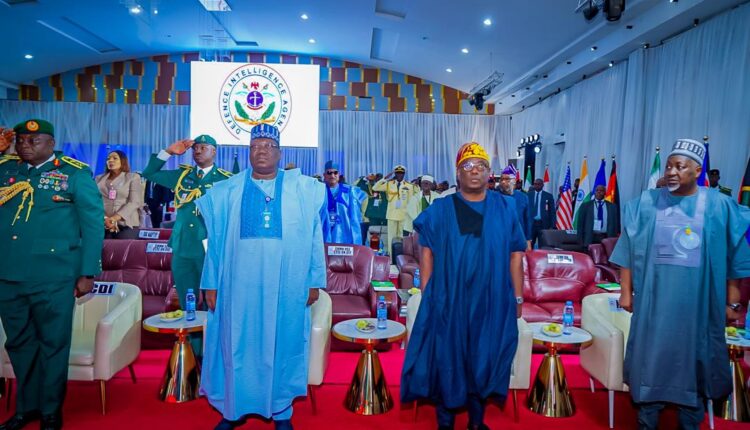Lawan Warns — Intelligence Must Evolve Faster Than Nigeria’s Enemies
Nigeria’s security conversation is often dominated by calls for more weapons, more troops, and more funding. But Senator Ahmad Lawan who is the senate Committee chairman on Defencehas now shifted the debate to a more urgent frontier: intelligence innovation. From his vantage point as Chairman of the Senate Committee on Defence, Lawan argues that Nigeria is no longer battling threats that can be confronted with force alone — it is battling speed.
At the Chief of Defence Intelligence Annual Conference 2025 in Abuja, Lawan delivered a message that goes beyond speeches and ceremonial warnings: Nigeria’s survival now depends on how quickly it can build an intelligence system that learns, adapts, and predicts faster than the threats it faces.
From terrorism to cyber intrusions, financial crimes to transnational syndicates, the threat landscape is evolving at a velocity that traditional intelligence structures can’t match. Lawan’s remarks framed the crisis not just as a matter of insecurity, but as a technological arms race — one where Nigeria has historically been behind.
He underlined a critical shift: Yesterday’s threats were linear. Today’s threats are networked. Tomorrow’s will be autonomous.
The only way to stay ahead, he said, is to adopt intelligence models that fuse information from every possible domain — digital, diplomatic, military, financial, and community-based.
Lawan’s call for artificial intelligence, machine learning, open-source intelligence, and real-time data fusion wasn’t a rhetorical flourish. It signals a recognition that modern security victories are won long before physical conflict begins.
In other words, the surveillance feed, the algorithm, and the data analyst are becoming as important as the soldier on the battlefield.
Many advanced nations already operate intelligence platforms that can predict attacks before they happen. Lawan warned that Nigeria risks strategic blindness if it continues relying on outdated reactive systems.
One of the most compelling aspects of the conference is its architecture: Defence Attachés abroad speaking alongside State Office Coordinators at home. This fusion is not ceremonial — it reflects the very philosophy Lawan is advocating.
Global intelligence without local verification is incomplete. Local intelligence without global context is limited.
Attachés track geopolitical shifts and transnational threats; state coordinators detect early warnings at the grassroots level. Together, they form a nationwide, multi-layered intelligence web — the kind required for a country facing threats that originate in borderless digital space but land in rural communities.
Lawan’s call for stronger bilateral and multilateral cooperation reflects an uncomfortable truth: Nigeria cannot outpace adversaries who collaborate across borders while it operates in silos. He urged deeper coordination between domestic agencies and community-level intelligence, describing partnership as the “backbone” of modern defence strategy.
He commended the Chief of Defence Intelligence, Major General Emmanuel Undiandeye, for convening a conference that mirrors global best practices. But beneath the praise was a challenge: the conference must not be another intellectual exercise. It must produce reforms that make intelligence faster, smarter, and more predictive.
As the conference runs from November 24 to 28, Lawan’s message reverberates:
Nigeria is no longer just fighting criminals — it is fighting time.
If threats are evolving by the hour, the country’s intelligence architecture must evolve by the minute. The survival of the state may depend on it.

